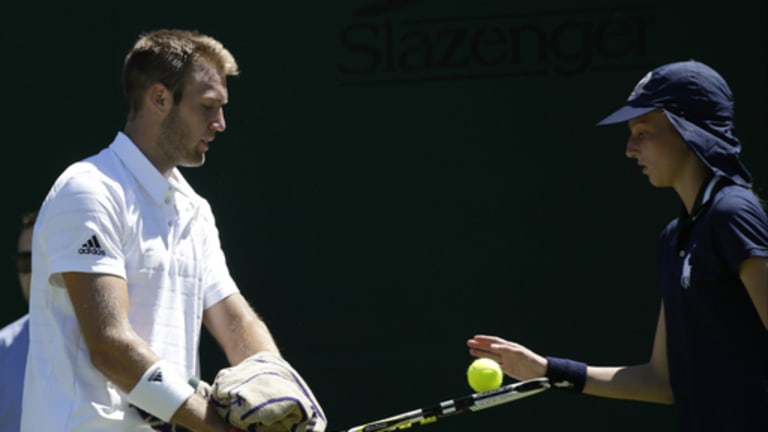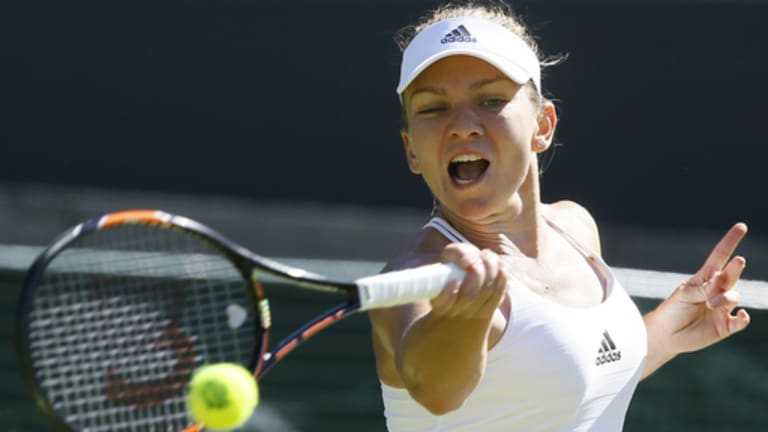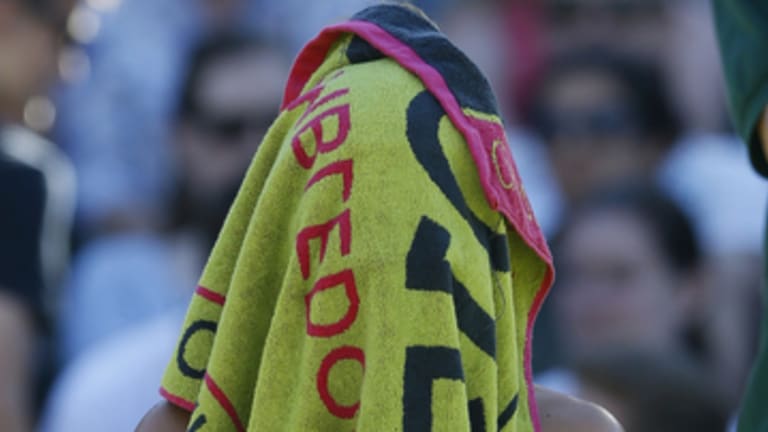“Play!” Jack Sock screamed at himself halfway through his match with Australia’s Sam Groth. But playing, or at least playing anywhere close to his best, wasn’t in the cards for the American on Tuesday. Last year at Wimbledon, the 22-year-old experienced his greatest tennis memory when he won the doubles title with Vasek Pospisil. This year at Wimbledon, Sock had an experience that was something less than memorable. Everything that could go wrong in his 6-3, 3-6, 6-3, 6-3 loss, did go wrong.
Sock came out flat, was broken in his opening service game, and never found an effective counter for Groth’s mix of huge serves, competent volleys, and deceptively good backhands. Rather than search for an answer, Sock responded with a “devil may care” demeanor, as the British commentator Chris Bowers put it. At times, he seemed stunned to be losing to a guy ranked 69th.
By the end of the third set, as the match was getting away from him, Sock had hit a ball in the direction of the Aussie Fanatics who were loudly chanting for Groth, and sent another off his frame and into the next court. By the middle of the fourth set, Sock had taken a medical timeout and had a needle stuck either in his knee or his finger, one of which needed to be drained. He rolled his head back in obvious pain. Injury had been added to insult.
Sock is now 1-2 at Wimbledon, and it’s possible that grass, unlike his newly beloved clay, will never be his surface. It may be a little too slick for him to have time to backpedal across the court and launch his supersonic forehand. But when Sock arrived in London this time, fresh off a fourth-round run at the French Open, his name was appearing in headlines next to phrases like “Next Great American hope.” This was the first time he had been seeded—31st—at a Grand Slam.



